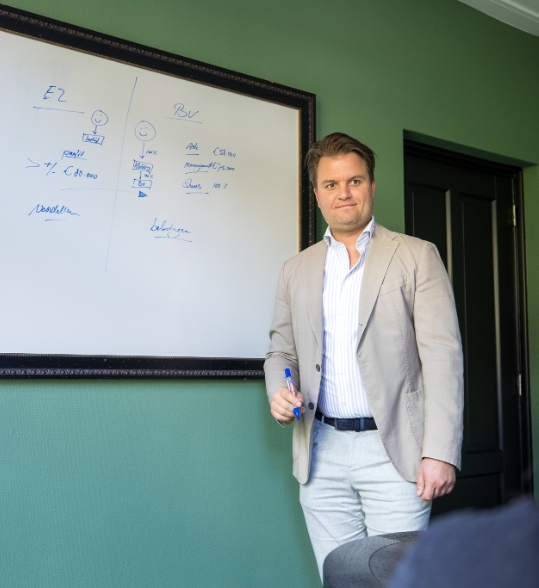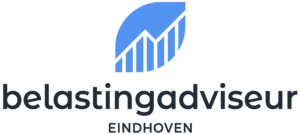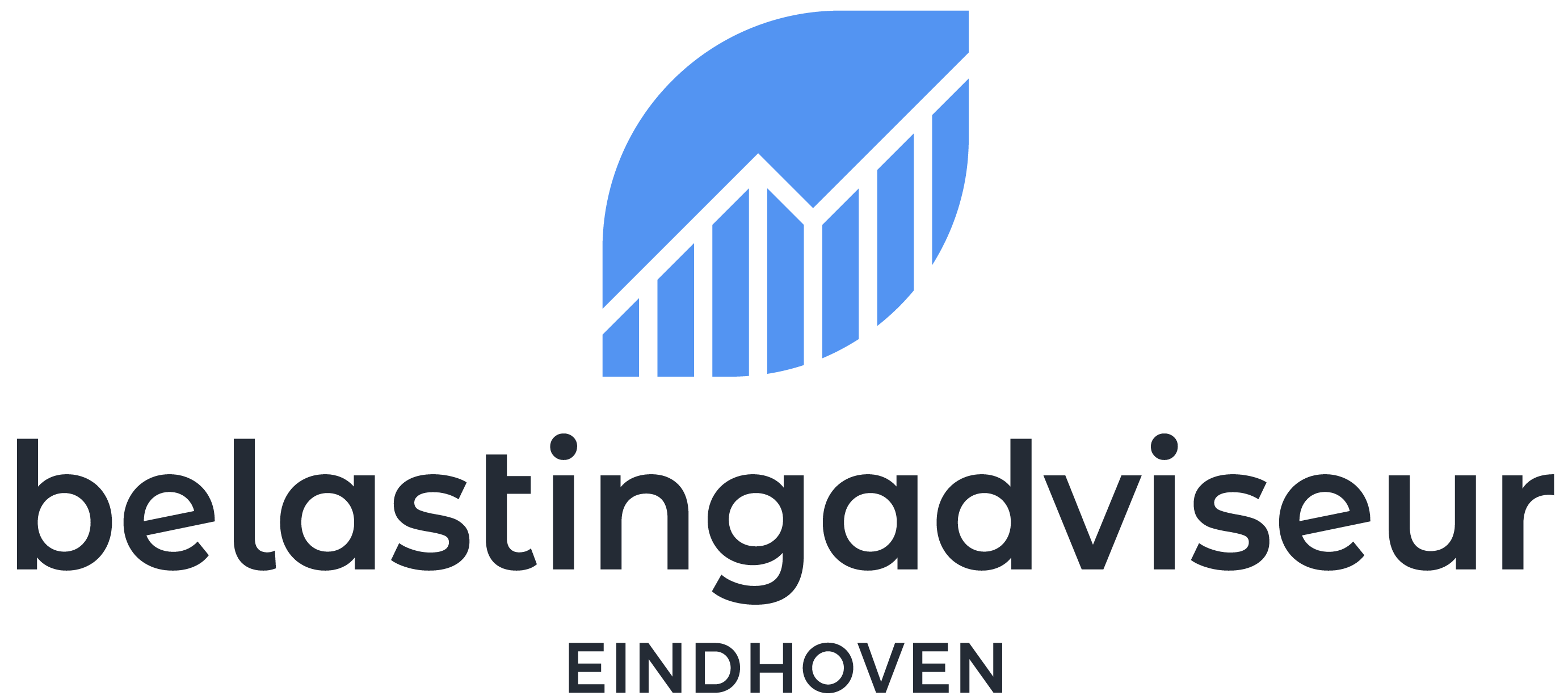Change sole proprietorship to bv
Are you considering switching from your Dutch sole proprietorship to a bv? Find out how we can guide you through this important step, offering expert advice and personal support for a smooth transition.
- In 99% of the cases our advice leads to considerable tax benefits.
- Transparent about our costs and working method.
- Quickly and easily arranged. You provide the requested documents, we do the rest!

Why convert a sole proprietorship to a bv?
There are several reasons for converting a sole proprietorship to a bv (besloten vennootschap), depending on the entrepreneur's specific situation and business objectives. Some of the reasons why a person might choose to convert a sole proprietorship to a bv are:
As the owner of a sole proprietorship, you are personally liable for all debts and liabilities of the company. By switching to a bv, liability is limited to the capital contributed, which means personal assets are better protected in case of bankruptcy or legal disputes.
In some cases, the tax rate for a bv may be more beneficial than that for a sole proprietorship.
Having a bv can have a more professional appearance than a sole proprietorship. For some entrepreneurs, this can help attract customers, partners and investors, as it gives the impression of an established and solid business.
If you plan to grow and attract investments, having a besloten vennootschap may be more attractive. Investors are often more inclined to invest in a bv because of the clearer structure and rules involved.
Transferring a bv to a new owner or arranging the transfer to heirs can be easier than with a sole proprietorship, because of the clear shareholder structure and transfer options inherent in a besloten vennootschap.
| Sole proprietorship (or general partnership) | Besloten vennootschap (bv) in the Netherlands | |
| Founding | Registration in the CoC | Notarial deed of incorporation + registration in the CoC |
| Property | Personal | Shareholders |
Legal act | Owner (or partners) | Board/director |
| Liability | Risk private liability | Shielded private assets |
Tax | Mandatory | Payroll tax, sales tax, corporate income tax and dividend tax |
| Financial annual report | N/A | Mandatory |
| Participation in other companies | N/A | Yes, the bv can hold shares in other companies |
The difference between a sole proprietorship and bv
There are many differences between the various legal forms. The besloten vennootschap (bv) is a Dutch legal form with legal personality, which means that directors are not liable with their private assets for any business debts. The bv can therefore assume obligations completely independently. The sole proprietorship has no separate legal personality and therefore no separate assets.
A transfer of assets subject to tax
With a transfer of assets subject to tax, the company is sold to the bv, as it were. The assets and liabilities of the sole proprietorship must be sold for a fair value. If the assets represent a capital gain above the book value, this can be taxed. For tax purposes, this results in the business being discontinued. The cessation profit is taxed in income tax.
If you convert your sole proprietorship to a bv with a transfer of assets subjet to tax before March 31 this year, you will still retain the option to avail of the current year's tax scheme.
A transfer of assets subject to tax-free
In the silent variant of contribution to a bv, the bv takes over the book values of the sole proprietorship (or VOF) and the company is continued (without cessation). In contrast to the no-closing variant, no cessation profit arises and no tax payments are made. Hence the designation 'silent continuation' that is often used.
The silent contribution has advantages when the sole proprietorship has a lot of hidden reserves or goodwill which means there can be a lot of cessation profit when the assets and liabilities have to be transferred for a fair value but the book value is low. Goodwill is not something you get straight from the figures. Consider the value of the customer base or the good name of your business. We can help determine the tax value of your company's goodwill. This variant also has an important limitation that the shares of the bv may not be sold in the first three years.
If you want to make use of the silent contribution, you must have sent the declaration of intent to the tax authorities before 1 October of the year in question. If you have done this on time, you have until 1 April of the following year to convert your company to bv.
Asset-liability transaction
In the asset-liability transaction, part of the assets (such as inventory, stocks, machinery, debtors) and liabilities (such as equity, creditors, debts) are acquired at book value during the conversion. This offers advantages such as selectively transferring assets and minimising risks for the buyer. Disadvantages include the need for consent for contract acquisition and possible remaining liabilities for the seller. An advisor can help with the valuation and guide the process.
Three ways of converting sole proprietorship to bv
There are three variants for the tax contribution of a conversion, namely: the passive contribution, the silent contribution and the asset-liability transaction.

Consultancy fee conversion of sole proprietorship into a bv
In 10 clear steps, we guide you through the process of converting a sole proprietorship into a besloten vennootschap (bv). We carry out the first 3 steps for a fixed amount starting from € 1,500 excl. 21% VAT, assuming a single-person company (sole proprietorship).
Frequently asked questions about conversion of sole proprietorship to bv
Find here the answers to frequently asked questions by self-employed people about converting a sole proprietorship into a bv.
Dit is afhankelijk van de gewenste begeleiding. De eerste 3 stappen (kennismakingsgesprek, inventarisatie van de cijfers, analyse omzettingstest en adviesmemo bv) voeren wij uit voor een vast bedrag vanaf € 1.500 excl. 21% btw waarbij we ervan uitgaan dat het een enkelvoudige onderneming betreft (eenmanszaak). Wil je de gehele omzetting door ons laten begeleiden, neem dan contact met ons op voor een voorstel.
Doordat de belastingen ieder jaar veranderen, verandert ook het omslagpunt. In 2025 ligt het omslagpunt op ongeveer een winst van €80.000 per jaar. Echter is dit afhankelijk van verschillende omstandigheden en niet voor iedere eenmanszaak hetzelfde. Laat je daarom goed hierover adviseren.
This depends on several factors. Consider the expected profit, possible investments, nature of the activities, etc. Want to know what is most advantageous for you? Then get in touch with us.
This depends on several factors, including the entrepreneur's income, expected profit, the nature of the business' activities and the entrepreneur's personal situation and more.
What our customers say about us
Read more about the experiences of (self-employed) entrepreneurs with us.
50+
reviews from satisfied customers
Convert sole proprietorship?
- (040) 3035112
- [email protected]
-
Stratumsedijk 6
5611 ND, Eindhoven (NL)
Let's get in touch.
Do you think you are ready to bring your company into a bv and do not know where to start? Then contact us.








